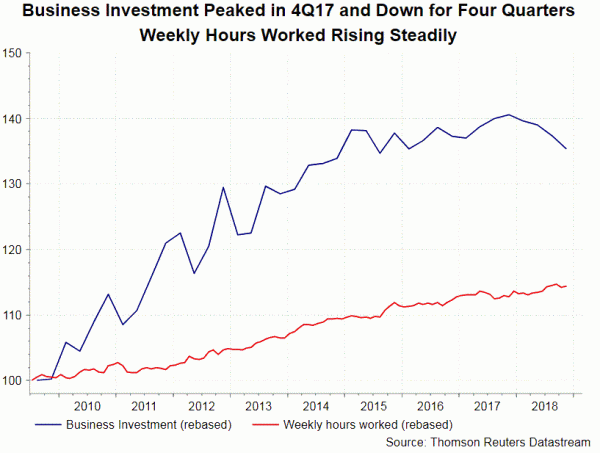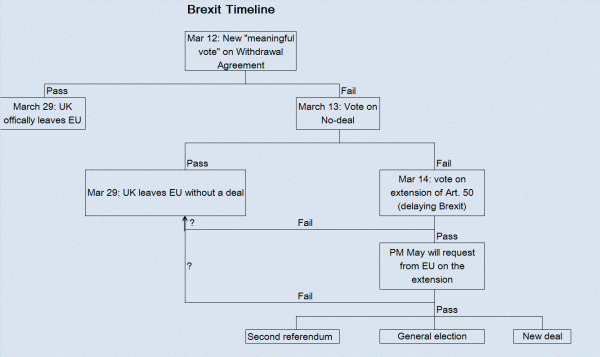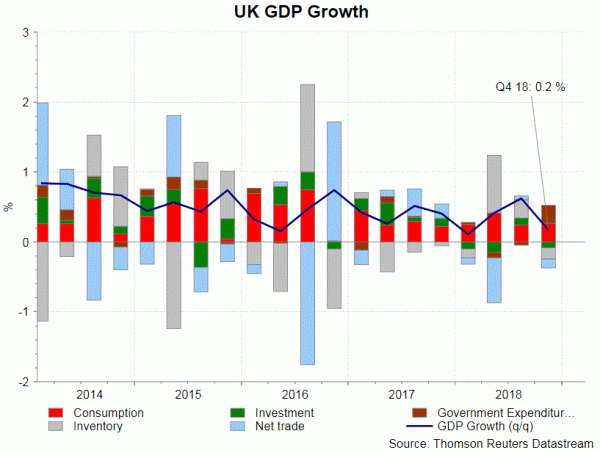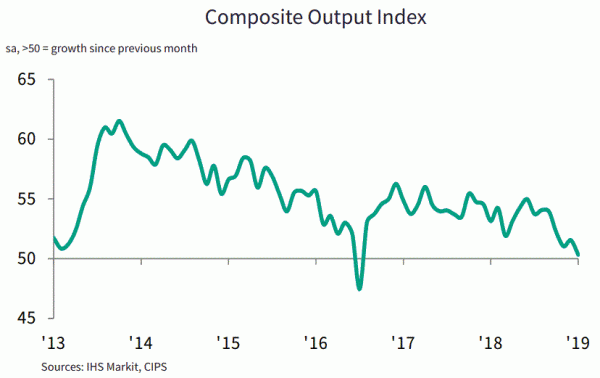Indeed, there is not much update after the parliament voted down the original Brexit deal (Withdrawal Agreement) proposed by PM Theresa May back in January. Yet, things evolving since then appear to have diminished, or delayed, the risk of a no-deal Brexit. There are a number of votes scheduled to take place in the parliament in March. With little breakthrough on the negotiation with EU, it is getting more likely that the MPs would prefer to extend Article 50, buying time to avoid leaving the EU with no deal. The market is obviously thrilled by developments, with sterling and gilt yields strengthening on any news that reduce the chance of no-deal Brexit. Yet, the UK economy has already been suffering due to the uncertainty. Extending Art. 50 could actually be prolong the damage done on the economy by Brexit uncertainty.
Upcoming Brexit Votes
February 27 – Vote on amendments to the Government’s motion ahead of another “meaningful vote” in March. The most-talked one is the Cooper-Letwin amendment, tabled by Labour’s Yvette Cooper and Conservative Sir Oliver Letwin to avert no deal on March 29. Cooper confirmed that the amendment would still be tabled so as to “to secure confirmation of PM’s commitment
March 12 – Meaningful vote on a new Brexit deal. This is essentially a repeat of what was done on January 15. Recall that the parliament rejected the original deal by a 432-202 vote. PM May promised to renegotiate with the EU, especially on the Irish backstop issue. As the EU has so far refused to reopen negotiations, the best PM May could do is to secure some “legal guarantees”.
March 13 – No-deal vote. If the “new” deal is again rejected on March 12, PM May would table a motion, asking if the MPs support to leave the EU without a deal on March 29. This is to get explicit consensus from the parliament as PM May affirmed that the UK “will only leave without a deal … if there is explicit consent in the House for that outcome”.
March 14 – Vote on Extension of Art. 50(delaying the time to officially leave the EU from Mar 29, 2019). If the above motion is rejected, meaning the parliament rejects a no-deal Brexit with a majority, it would then have to vote on whether to “seek a short, limited extension to Article 50”. If the extension is approved, PM May would have to seek unanimous approval from the EU parliament on the extension. The uncertainty here is that PM May has not specific the duration of the delay. It is believed that she prefers a 2-month extension, ending before the upcoming EU parliament election on May 23-26. However, short a short timeframe would unlikely be meaningful for any breakthrough. Some in the EU parliament instead propose a 21-month extension. A longer extension would increase the chance of a second referendum. While it is more likely that the majority would vote for an extension, PM May has yet to reveal a contingency plan should the extension vote be rejected.
Economy has been Suffering for Some Time
The market is in favor of anything that could reduce the chance of no deal Brexit. No doubt, a no-deal Brexit is the worst of all scenarios (amongst smooth Brexit, extension of Art.50 and no Brexit), UK’s economic development has already been damaged by the Brexit drama over the past few years.
GDP growth decelerated to +0.2% in 4Q18, from +0.6% in the prior quarter. For the full year of 2018, growth was only +1.4% in 2018, the lowest recorded in six years. The slowdown in the fourth quarter was broadly based. Household spending weakened as confidence was eroded. Gfk’s consumer confidence index has fallen to the most negative level since July 2013 Business investment plunged -1.4%q/q. It appears that businesses are more cautious in making big spending. Instead, they hire more labors as it is easier to reverse hiring decisions than capital investment decisions.
 BOE has downgraded sharply its GDP growth forecast for this year. PMI, usually used as a leading indicator to economic growth, has suggested that economic activities continued to fall in January. The January composite index fell to a 2.5 year low of 50.3, suggesting that “the UK economy is at risk of stalling or worse as escalating Brexit uncertainty coincides with a wider slower slowdown in the global economy”.
BOE has downgraded sharply its GDP growth forecast for this year. PMI, usually used as a leading indicator to economic growth, has suggested that economic activities continued to fall in January. The January composite index fell to a 2.5 year low of 50.3, suggesting that “the UK economy is at risk of stalling or worse as escalating Brexit uncertainty coincides with a wider slower slowdown in the global economy”.
With PM May softening her stance in accepting votes of two important motions (no-deal Brexit and extension of Art. 50) [and EU’s openness in the extension], it appears that the chance of rejection the first motion and approval of the second is high. In this scenario, what matter most is the time frame of the extension. The longer the duration of extension, the higher the case of second referendum. For now, the market is optimistic as the probability of a no-deal Brexit is greatly diminished, but not averted. However, we would like to point out that UK’s economy has suffered a lot as a result of Brexit uncertainty. MPs voting for the extension is prolonging the detriment done to the economy. The negative impact could be amplified in the midst of global economic slowdown.



